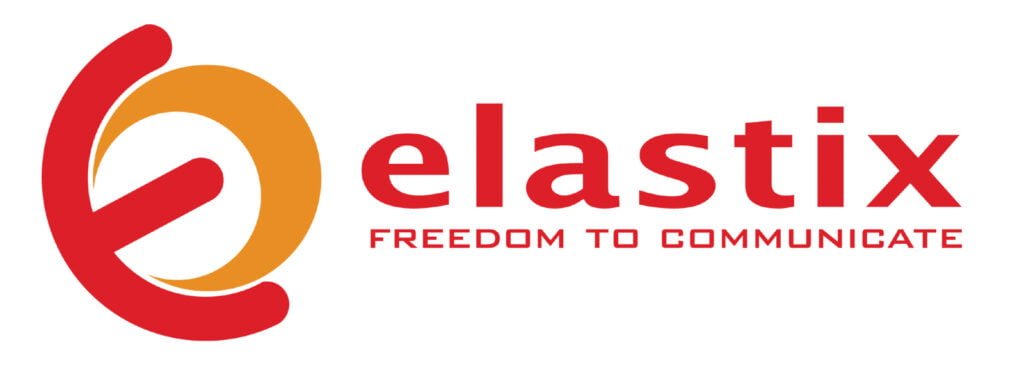FreePBX vs Elastix – The Differences In VOIP Systems

VOIP systems have become a hugely popular alternative to traditional telephone networks. They provide comprehensive communications solutions to small businesses and multi-national enterprises alike.
With an IP PBX phone system, users just need an internet connection and their device to make a call to colleagues in their team or even any regular telephone number.
It removes the need for expensive hardware installations, or costly calling bills. IP PBX solutions certainly appear to be the emerging norm for team communicating. However with an overwhelming array of different software types and providers to choose from. It can be difficult to know where to start.
In this guide we will break down two of the most popular VOIP platforms, as well as their pros and cons: FreePBX, and Elastix. We will be evaluating each platform in 4 different areas:
- Features
- Pricing
- Usability
- Support
What is FreePBX?
FreePBX is an open-source web based graphical user interface which manages the Asterix PBX system, a unified communications system.
Licensed under the GNU General Public License, FreePBX released for Linux in November 28th, 2004. As an open-source project, FreePBX is maintained by a community of developers and contributors who devote their time to making the complicated IP PBX system simple and easy to use for anyone.
FreePBX runs on Linux, and can even be installed as a standalone FreePBX distribution which includes the operating system and all the necessary dependencies.
Out of the box, FreePBX works as a fully functioning VOIP phone system with all the standard tools necessary to fulfil the communications needs of most companies.
It is heavily customisable and features a range of optional modules to add extra features or further functionality to your existing phone setup.

What is Elastix?
The final VOIP system we will be covering in this article is Elastix.
First released to the public in March 2006, Elastix was initially a web interface for call detail records reporting. It was soon released as a Linux distribution with a number of packages such as Asterix and Zaptel which helped provide a complete unified communications solution.
As of Elastix 5.0, Elastix is released under the terms of the 3CX license after being acquired by 3CX. As a result of this, the two platforms in their current states are relatively similar.
FreePBX vs Elastix
Features
FreePBX provides a large set of features, comparable to Elastix (although with a few caveats). As well as the standard PBX functions like making and receiving calls, fax and voicemail support, and paging/intercom systems.
FreePBX also offers many of the advanced features which Elastix also offers.
Web conferencing tools are available, as well as call queueing, digital receptionist, call recordings, call routing, and text messaging tools. Some of the features which FreePBX lacks compared to Elastix include:
- Official Android/iOS clients
- Click to Call
- Quick extension provisioning
- Delivering faxes or voicemails to inboxes
Some of these features can be added with optional addon modules, however they aren’t available with the base installation.
Elastix offers a complete and comprehensive set of features, with everything you could need in terms of communication, regardless of the size of your business.
It also offers all of the standard features you’ve come to expect from an IP PBX such as:
- Hot desking
- Android and iOS clients
- desktop softphone client
- Click to call
- Web conferencing
- Advanced call center features
However, 3CX offers such as call queueing, call recording & reporting, digital receptionist, voicemail & fax services and much more.
Elastix’s feature set is largely the same as 3CX due to 3CX owning Elastix and the framework that it runs on.
Currently, Elastix is best suited for those looking for a complete VOIP solution without having to spend lots of time configuring systems, or paying lots for expensive licenses.
Pricing
Pricing is one of the areas where FreePBX has a clear advantage over the competitors. As an open-source software package, there’s no licensing costs associated with FreePBX. So you only need to worry about paying for hosting.
The only other area which you may need to pay additional costs for is if you choose to install any of the additional modules to add extra features to your FreePBX system. The module pricing varies, from £25 all the way to £1500 for the most advanced modules.
While Elastix is comparable to FreePBX in many different areas, the pricing is where Elastix can typically be found for slightly cheaper.
As you will have to pay the licensing fees for many of the advanced features of Elastix. You’ll find that hosting companies will typically offer Elastix hosting at a higher price than FreePBX hosting.
Elastix can even be downloaded for free and configured on your own home server if you want to host at home. There’s also no paid modules or addons for Elastix, unlike what you’d find with FreePBX.
Usability
The graphical user interface in FreePBX is user friendly and relatively straightforward to work. No programming is required to setup FreePBX initially, so it works straight out of the box.
Although for specific configurations, you will need to spend time working it out. As FreePBX accommodates a large range of configurations. It can be difficult to know where to go to change specific settings or options.
The user interface is easy to use, provisioning phones and adding users is a little more difficult than it is with Elastix. So it’s worth reading the user manual before starting with FreePBX.
Usability is an area where Elastix differs somewhat to FreePBX. Elastix does however come with a web based management control panel in a graphical user interface, very similar to the control panel that FreePBX provides.
In this control panel you can manage basically every aspect of your IP PBX. From provisioning phones and extensions, to managing call recordings, to adding new SIP trunks. User management is done on the control panel as well as any other administration tasks.
In general, Elastix makes it very easy to manage your VOIP system, add new users, or even upgrade your existing IP PBX setup.
Support
As FreePBX is a collaboration between many different developers, there is plenty of user-generated support material available on the internet.
Many VOIP forums can provide technical support or help troubleshoot specific problems with FreePBX. While FreePBX doesn’t quite match the level of support which 3CX offers, it’s understandable as there are no license fees.
The official FreePBX website does contain an FAQ, official community forums, issue tracker, and a training portal. FreePBX also offers paid support which will provide you with a dedicated support number. So you can get expert support with your PBX should you need it.
Elastix offers a range of support materials on their official website. With plenty of tools to get you on the right track. As it’s owned by 3CX, they have the same support portal where you can speak to a member of staff to troubleshoot any issues or help you with technical support.
There’s also user manuals and even administrator manuals to get you started using the software.
Finally, there’s a mountain of different blog posts, forum posts, and web pages with discussions and reading materials that should help you overcome any basic issue with your IP PBX.
To Conclude
Comparing FreePBX and Elastix in detail would take more than one article, but we hope this guide has helped clarify your doubts about their features, usability, pricing, and support options.
Ready to get started? Check out our affordable PBX Cloud Hosting plans or contact our Support Team for assistance. You can reach us through live chat, submit a support ticket, or call us directly – we’re here to guide you every step of the way.
If you have any additional questions or need personalized advice to determine which option is best for your business, don’t hesitate to get in touch. Let us help you make the best choice for your communication needs!

